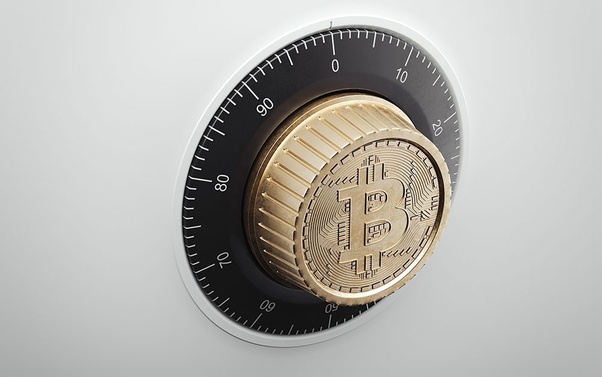One important consideration is that cryptocurrencies cannot be manipulated quite as easily as fiat currency, largely due to their decentralized and unregulated status. Beyond that, cryptocurrencies could better support the concept of a universal basic income than fiat currencies would. As a matter of fact, some programs have already experimented with the use of cryptocurrencies as means of distributing a universal basic income.
Further, cryptocurrencies could help to get rid of intermediaries in everyday transactions. This could cut costs for businesses and help out consumers.
Of course, there are also some huge challenges and concerns with this scenario. If cryptocurrencies outpace cash in terms of usage, traditional currencies will lose value without any means of recourse. Should cryptocurrencies take over entirely, new infrastructure would have to be developed in order to allow the world to adapt. There would inevitably be difficulties with the transition, as cash could become incompatible quite quickly, leaving some people with lost assets. Established financial institutions would likely have to scramble to change their ways.
It is important to note that while the initial Bitcoin-mania saw quite a few businesses offer to accept the cryptocurrency, that list has steadily dwindled brining back the skepticism about its use a medium of exchange.
Beyond the impact of a cryptocurrency future on individual consumers and on financial institutions, governments themselves would suffer. Governmental control over central currencies is key to regulation in many ways, and cryptocurrencies would operate with much less government purview. Governments could no longer, for example, determine how much of a currency to print in response to external and internal pressures. Rather, the generation of new coins or tokens would be dependent upon independent mining operations.
Regardless of how individual investors may feel about the prospect of a switch from standard cash to cryptocurrencies, it is likely out of anyone’s hands. Of course, with ample speculation abounding that the cryptocurrency industry is a bubble that is destined to pop, it’s also possible that predictions of a crypto future could be overblown. What is difficult for investors is that, as with all things crypto-related, changes happen incredibly quickly, and predicting them is always tough.
Highly Unlikely that Physical notes will be replaced, still believe It’ll always be there.
Is it safe to invest in Bitcoin? Bitcoin is a volatile investment. If you're looking for a “safe” investment with guaranteed returns, then don't invest in Bitcoin — or any cryptocurrencies for that matter. Just over the past few months, the price of one Bitcoin has fluctuated between $30,000 and $60,000. Bitcoin isn't the only volatile cryptocurrency, and other, smaller coins may be even riskier. But in the end Bitcoin and Crypto in general is still profitable if you invest and trade with the right strategy and



